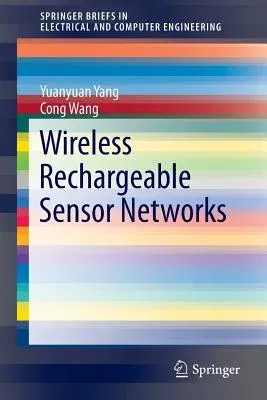Yuanyuan Yang
(Author)Wireless Rechargeable Sensor Networks (2015)Paperback - 2015, 30 April 2015

Qty
1
Turbo
Ships in 2 - 3 days
In Stock
Free Delivery
Cash on Delivery
15 Days
Free Returns
Secure Checkout
Part of Series
Springerbriefs in Electrical and Computer Engineering
Print Length
56 pages
Language
English
Publisher
Springer
Date Published
30 Apr 2015
ISBN-10
3319176552
ISBN-13
9783319176550
Description
Product Details
Authors:
Book Edition:
2015
Book Format:
Paperback
Country of Origin:
NL
Date Published:
30 April 2015
Dimensions:
23.39 x
15.6 x
0.38 cm
Genre:
Science/Technology Aspects
ISBN-10:
3319176552
ISBN-13:
9783319176550
Language:
English
Location:
Cham
Pages:
56
Publisher:
Weight:
113.4 gm

